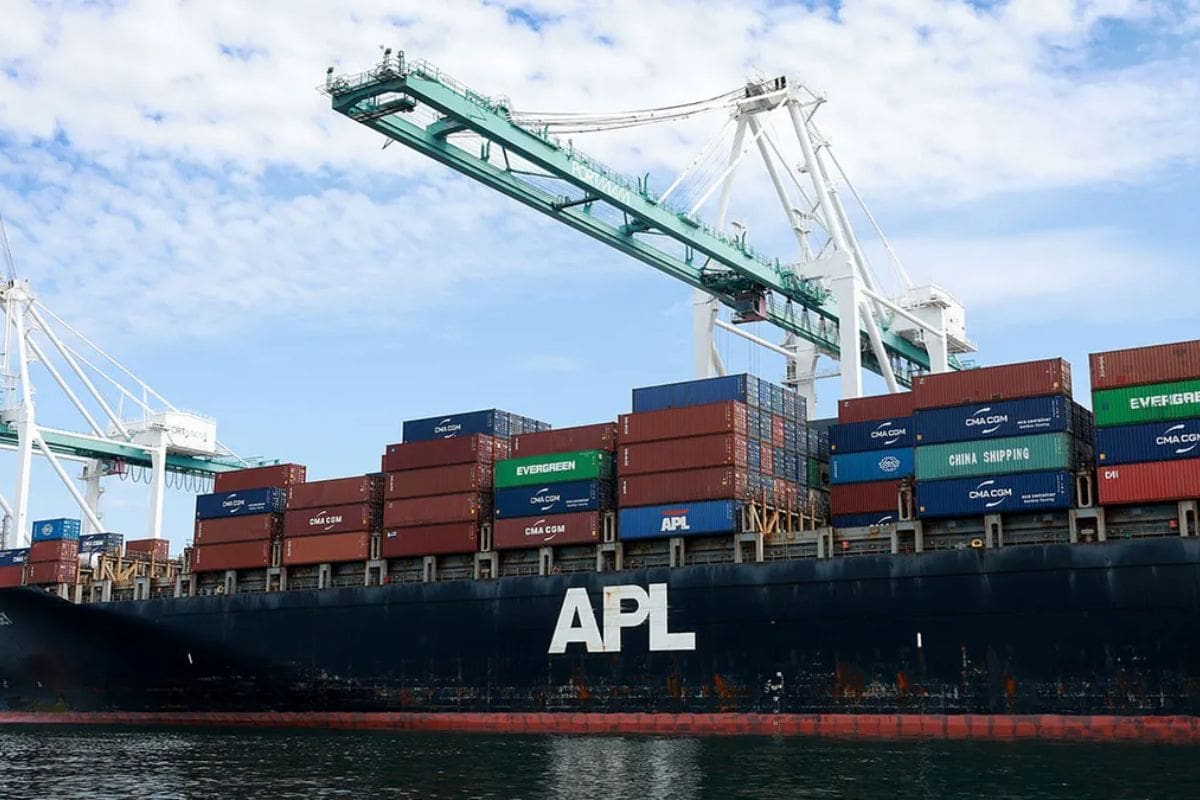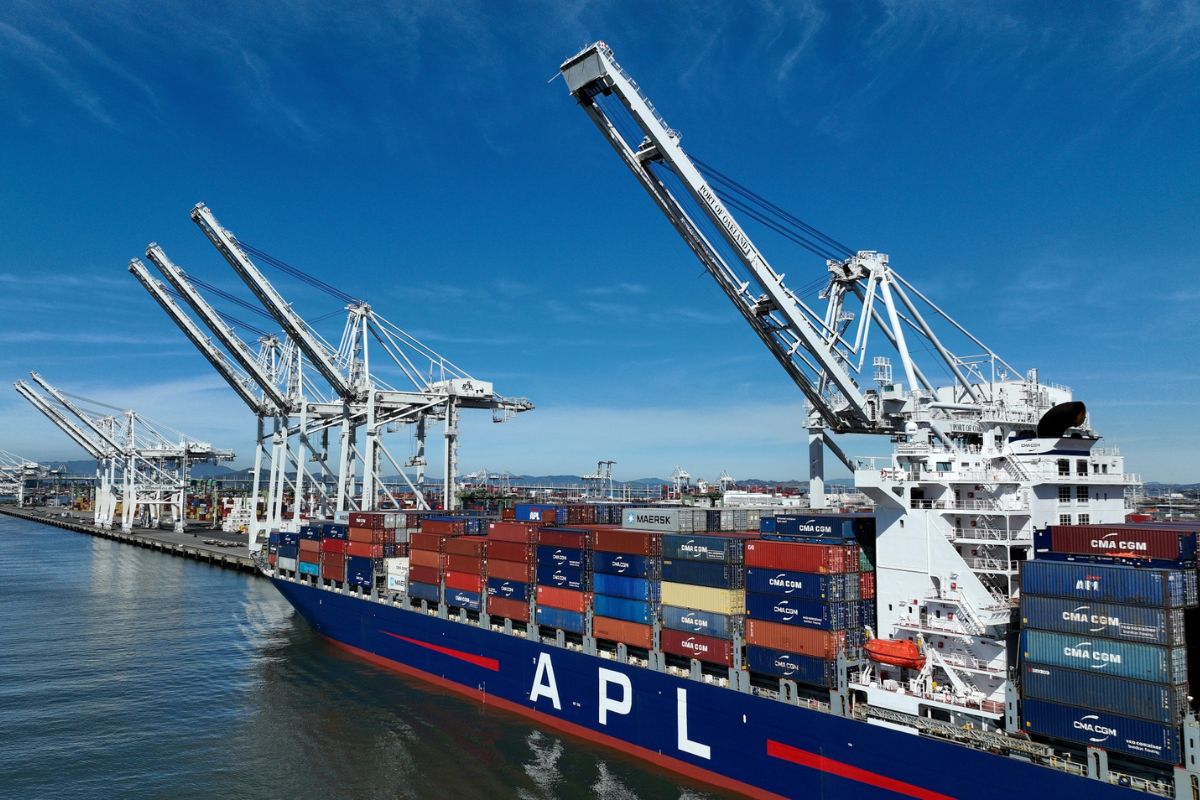US Port Chief Chinese Made Cranes Spark: The recent procurement of Chinese-made cranes by US ports has raised significant national security concerns among top officials. With the potential risks associated with foreign-made infrastructure equipment, the implications go beyond mere economic considerations.
In an increasingly interconnected world where data security is paramount, the use of such cranes has sparked debates and calls for stringent measures to safeguard critical infrastructure. The implications of this situation not only affect the ports directly involved but also have broader implications for national security.
The need for a comprehensive assessment of risks and potential solutions is pressing.
Chinese-Made Cranes Raise National Security Concerns
The national security implications surrounding the utilization of Chinese-made cranes in US ports have become a focal point of concern within the Biden administration. Gene Seroka, the head of the Port of Los Angeles, has highlighted the potential risks associated with these cranes, particularly citing worries about data collection and remote servicing capabilities.
With over 200 ship-to-shore cranes in US ports being manufactured by China’s Shanghai Zhenhua Heavy Industries Co (ZPMC), the administration faces a significant challenge in addressing this security vulnerability. The reliance on ZPMC for these critical infrastructure components poses a dilemma, as the shortage of alternative crane suppliers globally complicates efforts to mitigate these risks effectively.
This situation underscores the need for a comprehensive assessment of the security implications and potential solutions to ensure the integrity and safety of US port operations. As the debate intensifies, finding a balance between operational needs and national security imperatives will be crucial in shaping future policy decisions regarding the use of Chinese-made cranes in US ports.



Security Risks and Data Collection
Amid growing concerns over the national security implications of utilizing Chinese-made cranes in US ports, the focus has shifted to the security risks posed by data collection practices associated with these cranes. Seroka, in highlighting potential risks, emphasizes the collection of sensitive data and the uncertainties regarding its application.
The Biden administration shares these apprehensions, particularly regarding the remote servicing and programming capabilities of the Chinese-made cranes. These capabilities raise red flags as they could potentially create security vulnerabilities within US ports.
The concern lies in the possibility of unauthorized access to critical infrastructure and sensitive information, heightening the risk of data breaches or cyber-attacks. The collection of data by these cranes could provide avenues for malicious actors to exploit vulnerabilities and compromise port security.
As such, the security risks associated with data collection practices of Chinese-made cranes are at the forefront of national security discussions surrounding port operations.
Global Crane Market Dominance
With ZPMC’s significant market presence in gantry cranes for cargo ship operations, the challenge of sourcing alternative suppliers becomes increasingly complex. ZPMC’s dominance in the global market for these crucial machines used in cargo handling poses a dilemma for industry players and regulators alike. The sheer scale and specialized nature of gantry cranes limit the number of manufacturers capable of producing them to a select few, with ZPMC standing out as a primary provider. This market dominance raises concerns about over-reliance on a single supplier, particularly one based in a country that has been the subject of national security debates.
The global crane market is heavily influenced by ZPMC’s stronghold, making it challenging for companies to diversify their supplier base without compromising on quality, cost, or delivery timelines. As discussions around national security intensify, stakeholders are grappling with the need to balance security concerns with the practical realities of the global supply chain. Adapting to this landscape requires a nuanced approach that considers both the strategic importance of gantry cranes and the complexities of the market dynamics dominated by a single major player.
Exploring Domestic Solutions
Considering the need for mitigating security risks and enhancing domestic production capabilities, exploring solutions for manufacturing cranes within the United States has become a pressing priority. The concerns raised by US Port Chief Seroka regarding the national security implications of relying on Chinese-made cranes highlight the importance of developing a domestic industry for critical port infrastructure components. By exploring options to produce cranes locally, the United States can reduce its dependence on foreign suppliers and safeguard sensitive operations within its ports.
One promising development in this direction is the expansion plans of a US-based subsidiary of Japanese conglomerate Mitsui E&S Co, which aims to increase its crane manufacturing capacity in the US. This strategic move aligns with the significant federal funds allocated for port infrastructure improvements, providing an opportunity to bolster domestic production capabilities and create a more secure supply chain for essential equipment. By leveraging these investments and fostering a robust domestic crane manufacturing sector, the United States can address security concerns while boosting its economic resilience in the long term.


Also Read: Breeze Airways Expands Charleston-California Flights!
News In Brief
US Ports Grapple with Security Concerns Over Chinese-Made Cranes National security worries intensify as over 200 cranes in US ports, manufactured by China, raise data and remote servicing concerns. The Biden administration faces the challenge of addressing this vulnerability while contending with the global dominance of Shanghai Zhenhua Heavy Industries Co. (ZPMC). Security risks linked to data collection practices and the market dynamics of gantry cranes further complicate the situation. Amid discussions, exploring domestic solutions gains importance, with a US-based subsidiary of Mitsui E&S Co planning to increase crane manufacturing capacity, aligning with federal funds for port infrastructure improvements.

